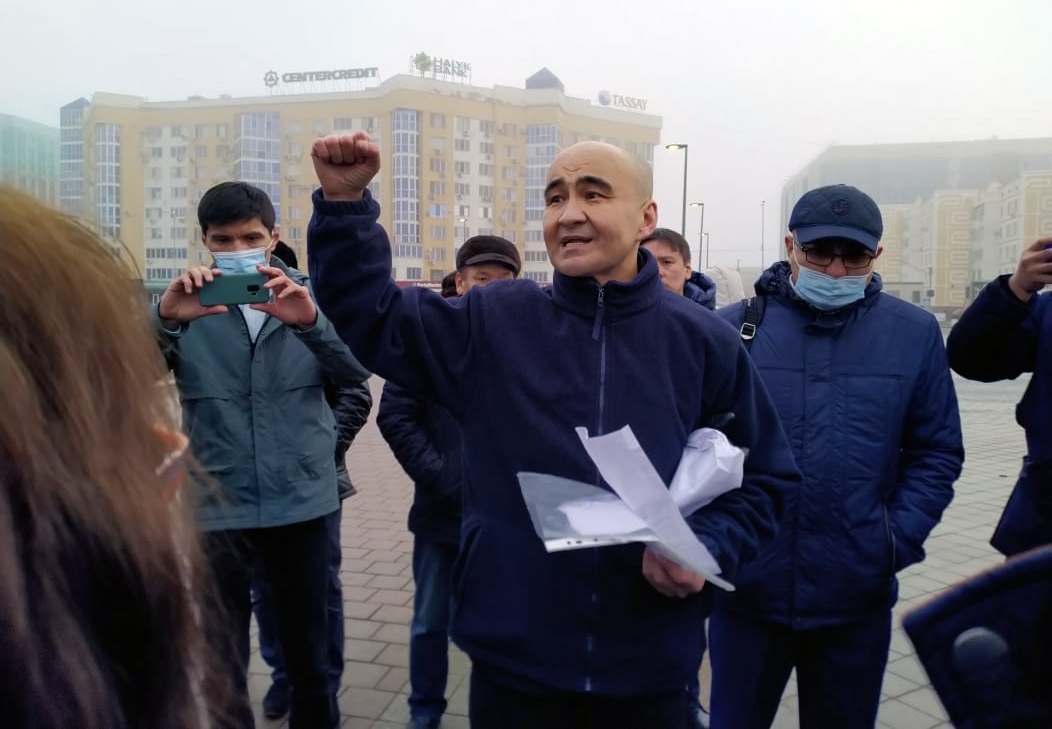
Police in Kazakhstan detained dozens of protesters on Sunday (28 February) who were calling for the release of political prisoners in line with a resolution passed by the European Parliament.
Government opponents were attempting their first protest since the resolution called for the European Union to prioritise rights in its relations with Kazakhstan, saying there had been a “worrying deterioration” in the oil-rich country.
Roughly 50 protesters were detained in the largest city Almaty before they could gather near a city park, where the internet appeared to have been shut down.Several of the protesters shouted “freedom to political prisoners” as they were manhandled into waiting vans.
The Central Asian nation’s new president Kassym-Jomart Tokayev has styled himself as a reformer and last year signed off on a law easing restrictions on public assembly.
But the European Parliament’s non-binding 11 February resolution said “systemic shortcomings in relation to respect for freedom of association, assembly and expression” persisted.
It also criticised “secret court decisions” that have outlawed as extremist two opposition groups affiliated with former energy minister Mukhtar Ablyazov.
Kazakhstan’s foreign ministry said the resolution was “initiated by unfriendly politicians, fuelled by inaccurate information from destructive circles”.
The state prosecutor warned on Friday that anyone attending the protests — called in cities across the vast country — could face administrative detentions of between 20 and 50 days for joining unauthorised rallies.
In a Facebook post on Saturday, Ablyazov, who fled the country in 2009, called on Kazakhs “not to stay on the sidelines when democracies are ready to support the people of Kazakhstan in the fight against dictatorship”.
The ex-bank chief, who is wanted for embezzlement and organising the murder of a banker in his home country, was granted asylum by France.
He insists the criminal cases are politically motivated retribution for his opposition to former president Nursultan Nazarbayev, who remains a powerful figure and is close to Russian leader Vladimir Putin.
Original source: EURACTIV.com with AFP





